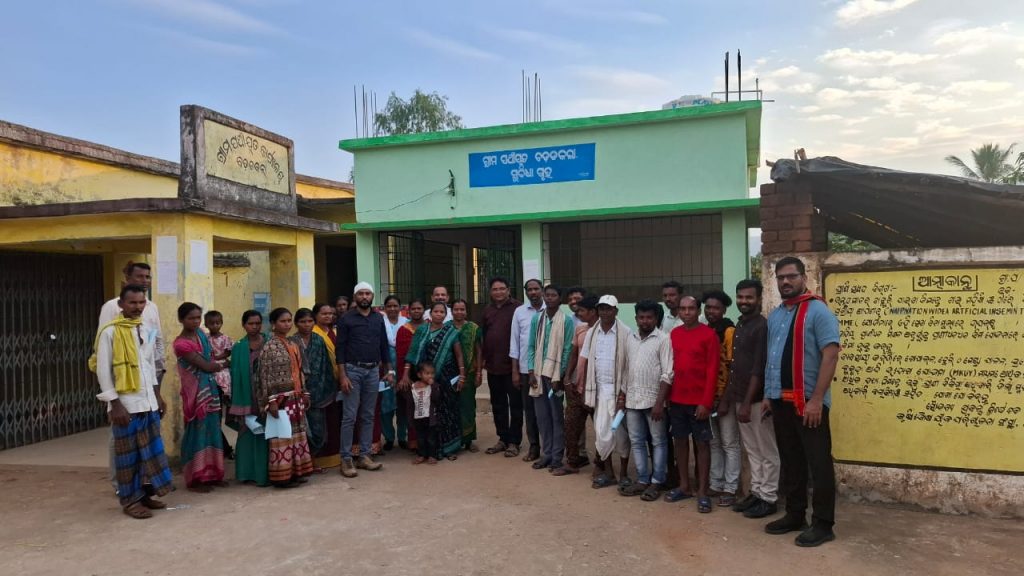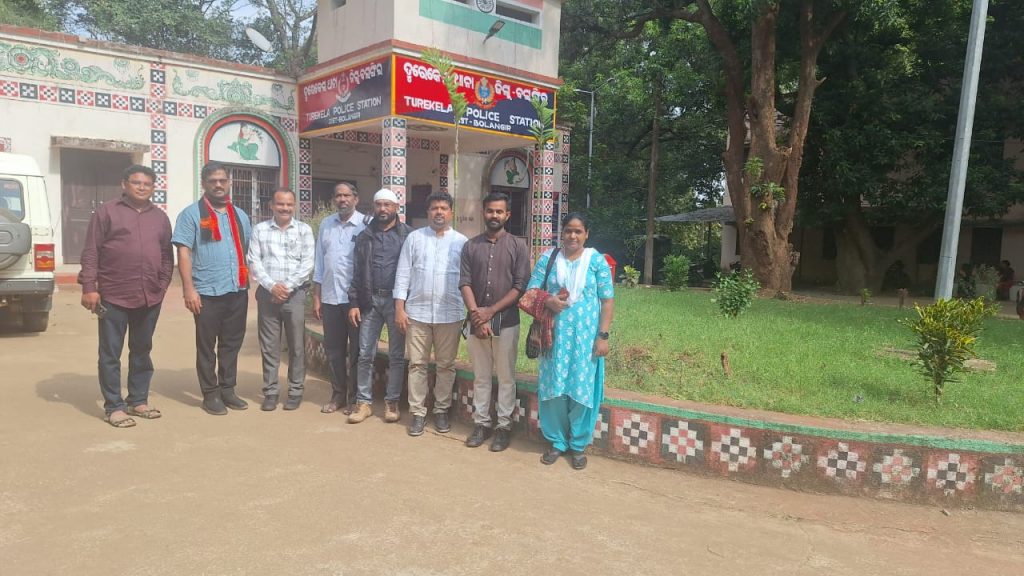On December 3 and 4, 2024, the DB Forum hosted a two-day program at JMJ School in Kantabanji village, Odisha, focused on the challenges faced by migrant workers from Odisha who move to other states for work. Representatives from Karnataka, Tamil Nadu, Telangana, Andhra Pradesh, and Chhattisgarh participated in the event. Fr. Gandala Simharayulu and Mr. Ameer Muhammad who is tasked to coordinate the DB4M chapter of Hyderabad province were part of the delegation to Kantabanji.
You know very well that migration is a complex and significant global phenomenon that affects millions of people each year. According to the United Nations, over 280 million people, or 3.6% of the global population, were international migrants in 2020. Migration is often driven by factors such as economic opportunities, conflict, environmental disasters, and social factors like education and family reunification.
In India, migration is particularly pronounced, with millions of people moving from rural to urban areas or across states in search of better livelihoods. The 2011 Census of India recorded over 450 million internal migrants, and this number has likely increased in recent years. A significant portion of these migrants comes from economically underdeveloped regions, seeking employment opportunities in more industrialized states. Many of these individuals work in sectors such as construction, agriculture, domestic labor, and manufacturing.
Migrant workers from Odisha, a state in eastern India, form a substantial part of this workforce. Each year, a large number of people from rural areas of Odisha migrate to other states in search of employment, often facing challenges such as exploitation, lack of legal protection, and limited access to welfare programs. The impact of migration on these individuals and their families has become an urgent issue, requiring focused efforts from both government and non-governmental organizations to ensure their rights and well-being are protected.
The visit to Kantabnji was an effort to have a first hand information regarding this situation. The Program began at 10:00 AM with Father Francis Bosco offering an overview of the geographical context of migrant workers from Odisha. He explained that Odisha is a resource-rich region from which people migrate to other states—”destination points”—in search of livelihood opportunities.
DB4M sought the collaboration of Aid et Action to understand better the issues faced by migrant workers, explore the reasons behind their migration, and identify potential solutions. Representatives from Aid et Action shared valuable insights:
- Umi Denial, Director of Aid et Action, participated remotely via video call.
- Saroj Kumar Barik, Program Manager, and Dayasagar presented a comprehensive PowerPoint highlighting their efforts and strategies.
Their presentation included government data revealing that around 21,000 individuals migrated from Odisha to other states in 2023 as migrant workers. They emphasized the importance of identifying hotspot villages where migration is most prevalent and raising awareness about government welfare schemes and resources, including toll-free helplines.
The program also focused on providing migrant workers with guidance on necessary precautions before migrating. Strategies for connecting migrants with key stakeholders—such as panchayats, police stations, Anganwadi centers, and other government departments—were discussed to ensure support and address issues faced by workers.
Representatives from the DB Forum who attended from other states shared their experiences and asked questions that were addressed during the session. Their input further enriched the discussions and provided diverse perspectives.
The event aimed to raise awareness and offer practical solutions to the challenges faced by Odisha’s migrant workers, fostering improved coordination among various entities and stakeholders involved
The exposure helped the participants to explore the challenges faced by migrant workers from Odisha, specifically those who move to other states for work and helped to raise awareness, share experiences, and develop practical solutions to improve the lives of migrant workers and enhance coordination between various stakeholders.



